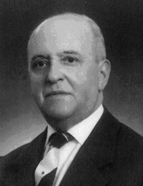

In the field of literary historiography, Dória paid tribute to Aubrey Bell and Edgar Prestage upon their deaths in 1950 and 1951, respectively. Later in life, he turned his focus to the origins of Portuguese historiography, particularly that of the 19th century. In 1978, he analysed the career of Alexandre Herculano on the occasion of the centenary of his death, publishing his findings in Bracara Augusta ( Alexandre Herculano no 1º centenário do seu falecimento , Bracara Augusta, vol. 32, 1978, p. 5-35 [Separata]). In 1979, Dória published Os Primórdios das Navegações Portuguesas na obra de Alberto Sampaio [The Beginnings of Portuguese Navigation in the Work of Alberto Sampaio], where he began by situating himself within the historiographical tradition that shaped his work ( Os Primórdios …, 1979, 36 pp. [Separata]). Dória primarily expressed a traditional conception of history, favouring the narration of events and facts. His approach was inspired by critical romanticism, synthesising the work of Alexandre Herculano and Oliveira Martins. He emphasised individuals and personalities over collectives, society, or structures, adopting perspectives that contrasted with Comtean positivism, Marxism, and even the economic and social history dominant in the second phase of the Annales school.
In 1979, Dória was elected a Corresponding Member of the Academia Portuguesa de História [Portuguese Academy of History]. He also received the Commendation of Sciences, Letters, and Arts from the Military Order of St. James and the Sword. In 1980, he published a study on Teófilo Braga, titled Teófilo Braga, biógrafo de Camões [Teófilo Braga, Biographer of Camões], first in Bracara Augusta and later as a separate edition. In 1983, he wrote a work on Oliveira Martins, focusing on his contributions as a historian and exploring different facets of his personality in a series of studies compiled in the unpublished volume Oliveira Martins e o século XIX [Oliveira Martins and the 19th Century]. In his 1979 work Um livro, uma época [A Book, An Era], Dória expressed his admiration for José Relvas ( Um livro, uma época , 1979, pp. 5-76. [Separata]). In 1986, the Clio scholar published a study related to the centenary of Vida Nova [New Life], a movement closely linked to Oliveira Martins. Álvaro Dória passed away in 1990. His intellectual and professional career was multifaceted, seeking to blend various interests and reconcile his family’s connection to accountancy with his passion for Portuguese history. From a historiographical perspective, his work was discreet and erudite, assimilating Rankean historicism in an open and receptive manner, incorporating both interpretative and problematising elements.
This work is financed by national funds through FCT - Foundation for Science and Technology, I.P, in the scope of the projects UIDB/04311/2020 and UIDP/04311/2020.
